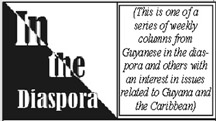By: Kevin Edmonds
Kevin Edmonds is a PhD student, at the University of Toronto and is affiliated with the Center for Critical Development Studies and the Caribbean Studies Program. He is also a member of the Campaign to End the Occupation of Haiti.
 Haiti’s most recent cycle of presidential elections has been marred by irregularities and significant allegations of corruption to the point that a group of eight leading opposition candidates, the Haitian Senate and leading figures in civil society had been calling for a postponement of the elections. On Friday afternoon, Haiti’s electoral council wisely gave in to the opposition in an effort to limit the deepening of the nation’s political crisis.
Haiti’s most recent cycle of presidential elections has been marred by irregularities and significant allegations of corruption to the point that a group of eight leading opposition candidates, the Haitian Senate and leading figures in civil society had been calling for a postponement of the elections. On Friday afternoon, Haiti’s electoral council wisely gave in to the opposition in an effort to limit the deepening of the nation’s political crisis.
While the holding of regularly scheduled elections is often pointed to as a sign of a healthy and vibrant democracy, holding elections at any cost and ignoring the repeated warnings of the electorate, civil society and opposition candidates would only serve to weaken Haiti’s fragile democracy. If the elections had gone forward as planned, it would have happened with only one candidate’s participation – that of current president Michel Martelly’s handpicked successor, Jovenel Moise.
Second-place presidential candidate, Jude Celestin, was one of the leading figures calling for a boycott of the runoff vote unless significant changes concerning the legitimacy of the voting process were implemented. As a sign of the popular discontent with the overall process, in the first round of the presidential elections, only 18 per cent of the eligible electorate cast their vote.
The decision by the electoral council to postpone the election is an incredibly important one, which may have the potential to set Haiti back on the right track – one that is based on the will of a true electoral majority, and not the narrow political interests of Michel Martelly, who has proven to be a democrat of convenience, and his small, but highly influential group of supporters.
Martelly’s determined support for the latest round of elections is totally at odds with his own political history, as he has long been an enemy of elections within Haiti – postponing them at multiple governmental levels for the first four years of his term. With Jovenel Moise as Martelly’s successor, it allows for a continuation of the “Haiti: Open for Business neoliberal platform that endeared Martelly to international investors and the Core Group of countries – but also affords Martelly important political protection, as it is incredibly unlikely that Moise will allow investigations into his predecessor’s corrupt and scandal plagued rule.
So far, the response from the international community – particularly the “Core Group” of countries that are significantly involved in Haiti’s affairs (U.S.A., Canada, Brazil, France and Spain) – had repeatedly stressed the need for Haiti to move forward and complete the process of elections, however problematic, by February 7. However, patronizing attitudes which ignore the popular consensus such as this were largely responsible for legitimizing the political crisis which brought Martelly to power in 2011, amidst the lowest voter turnout for a presidential election in the Western hemisphere since 1945.
The cultivation of democracy is a fragile process, and the Core Group’s dangerous and misguided efforts to push Haiti towards highly problematic elections would have damaged the long term ability of institutions and the wider society to act as a legitimate check on irresponsible political decisions. We have already witnessed how the international community’s support for the deeply flawed elections in 2011 which brought Martelly to power has further harmed, and not helped Haiti’s reconstruction efforts. Financing and rubber stamping the political process does not erase longstanding issues surrounding the need for free and fair elections in Haiti. The unfortunate efforts by Haiti’s largest “partners” to rush to elections would only have further undermined the confidence of Haitian voters in not only the legitimacy of, but the very point of participating in future electoral processes.
While the joint OAS-CARICOM Observation Mission to Haiti had expressed its concerns about the election through a mildly worded press release, CARICOM and other regional leaders must now more confidently speak up and work to ensure that the political status quo of illegitimate facades of elections can no longer continue in Haiti. CARICOM and regional leaders must take the lead and press for the implementation of the conditions which are essential for the holding of free and fair elections, including a credible voter registration process, transparent vote tallying and the establishment of a neutral, intimidation-free electoral environment.
CARICOM has played an important role in protecting Haitian self-determination at crucial junctures in its recent history, taking the high road in opposition to the demands of the United States and anti-democratic forces within Haiti. CARICOM now has been given the rare opportunity of having a second chance to demonstrate that it can provide a clear and principled alternative to the Core Group’s leadership in Haiti, and work to ensure that half of CARICOM’s population can exercise their historic, hard earned right to participate in a free and fair election.









